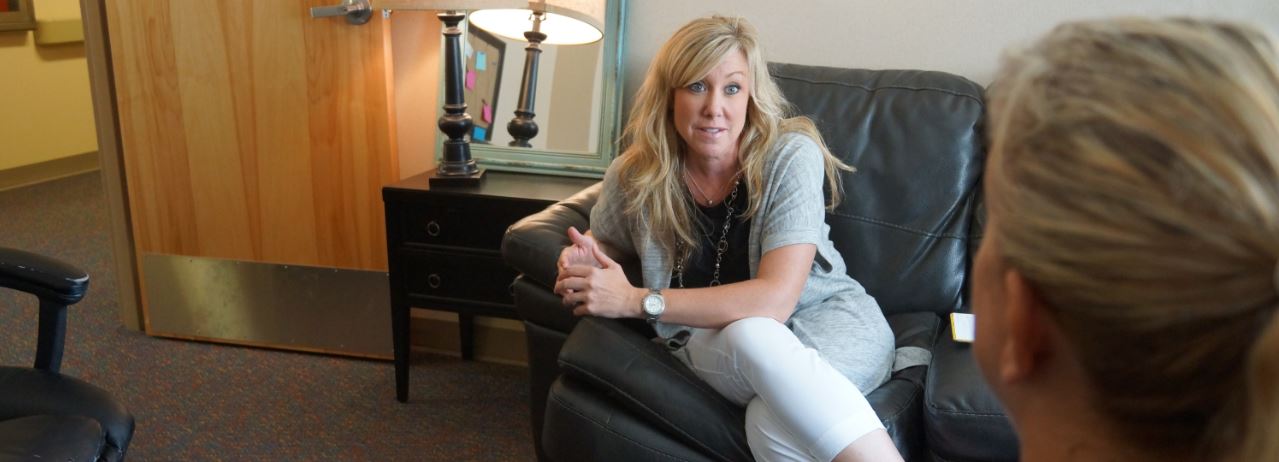Internship Program Admissions
Briefly describe in narrative form important information to assist potential
applicants in assessing their likely fit with your program. This description
must be consistent with the program's policies on intern selection and
practicum and academic preparation requirements:
|
Broadly speaking, applicants who have traits such as flexibility, drive, clinical skill, humor, and desire to learn are more likely to succeed. We value interns who have a desire to work as generalists in a semi-rural setting and are comfortable working with a clientele that is often highly religious given that our aim is to train generalist psychologists. We look for interns who are interested in developing their clinical flexibility and ability to “wear many different hats,” clinically speaking. Additionally, we seek diversity in all its forms and believe diversity in the internship nourishes the SRHC community and Salina in general.
We require that all interns have completed at least 400 hours of face-to-face delivery of professional psychological services prior to beginning the internship. We seek applicants who have a sound clinical and scientific knowledge base from their academic program, strong basic skills in standard assessment and intervention, and the previously-described personal characteristics necessary to function well in our Internship setting. Experience with the Rorschach, desire to serve rural populations, and comfort treating religious clientele is highly desired.
Our selection criteria are based on a "goodness–of–fit" with our practitioner-scholar model and training setting, and we look for intern applicants whose training goals match sufficiently the training that we can offer. We prefer intern applicants from university-based programs but consider candidates from free-standing programs as well. We select candidates from many different kinds of programs and theoretical orientations, from different geographic areas, of different ages, or different ethnic backgrounds, and with different life experiences.
|
Does the program require that applicants have received a minimum number of hours of the following at time of application? If Yes, indicate how many:
|
|
Total Direct Contact Intervention Hours
|
Yes
|
|
Amount:400
|
|
Total Direct Contact Assessment Hours
|
|
No
|
Amount:
|
Describe any other required minimum criteria used to screen applicants:
|
|
Although we do not state a specific number of assessment hours needed, the program prefers applicants to have some assessment experience and at least exposure to performance based measures such as the Rorschach.
|
Financial and Other Benefit Support for Upcoming Training Year*
|
|
Annual Stipend/Salary for Full-time Interns
|
$25,083
|
|
Annual Stipend/Salary for Half-time Interns
|
N/A
|
|
Program provides access to medical insurance for intern?
|
Yes
|
No
|
|
If access to medical insurance is provided:
|
|
Trainee contribution to cost required?
|
Yes
|
No
|
|
Coverage of family member(s) available?
|
Yes
|
No
|
|
Coverage of legally married partner available?
|
Yes
|
No
|
|
Coverage of domestic partner available?
|
Yes
|
No
|
|
Hours of Annual Paid Personal Time Off (PTO and/or Vacation)
|
80
|
|
Hours of Annual Paid Sick Leave
|
80
|
|
In the event of medical conditions and/or family needs that require extended leave, does the program allow reasonable unpaid leave to interns/residents in excess of personal time off and sick leave?
|
Yes
|
No
|
Other Benefits (please describe):
Dental and Vision
|
*Note. Programs are not required by the Commission on Accreditation to provide all benefits listed in this table
Initial Post-Internship Positions
|
|
(Provide an Aggregated Tally for the Preceding 3 Cohorts)
|
|
|
2016-2019
|
|
Total # of interns who were in the 3 cohorts
|
6
|
|
Total # of interns who did not seek employment because they returned to their doctoral program/are completing doctoral degree
|
0
|
|
|
PD
|
EP
|
|
Community mental health center
|
|
2
|
|
Federally qualified health center
|
|
|
|
Independent primary care facility/clinic
|
|
2
|
|
University counseling center
|
|
|
|
Veterans Affairs medical center
|
|
|
|
Military health center
|
|
|
|
Academic health center
|
|
|
|
Other medical center or hospital
|
|
|
|
Psychiatric hospital
|
|
1
|
|
Academic university/department
|
|
|
|
Community college or other teaching setting
|
|
|
|
Independent research institution
|
|
|
|
Correctional facility
|
|
|
|
School district/system
|
|
|
|
Independent practice setting
|
|
1
|
|
Not currently employed
|
|
|
|
Changed to another field
|
|
|
|
Other
|
|
|
|
Unknown
|
|
|
Note: “PD” = Post-doctoral residency position; “EP” = Employed Position. Each individual represented in this table should be counted only one time. For former trainees working in more than one setting, select the setting that represents their primary position.

